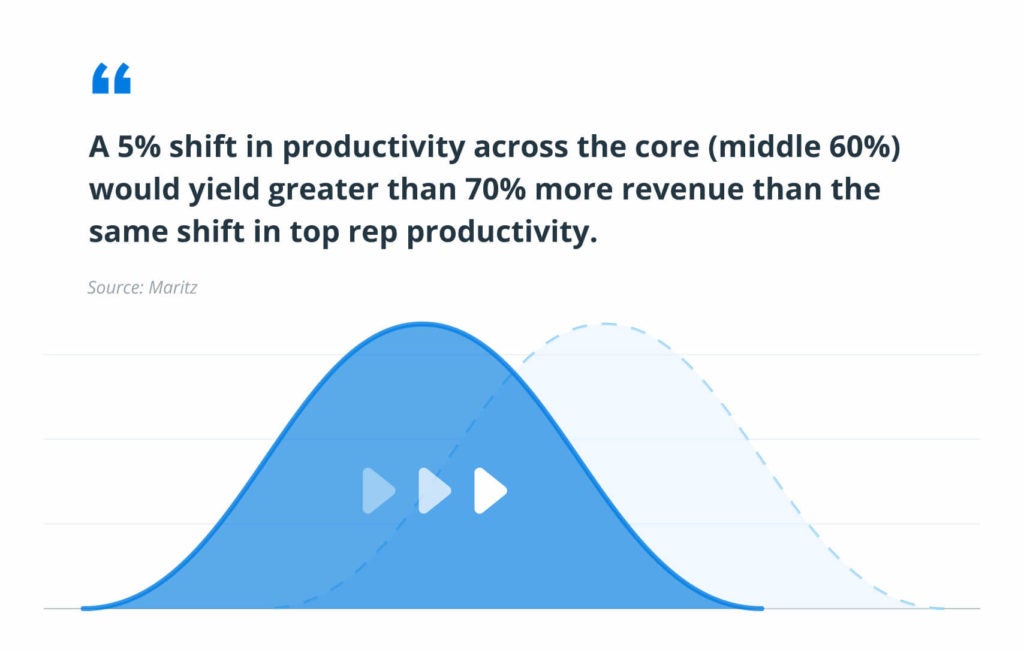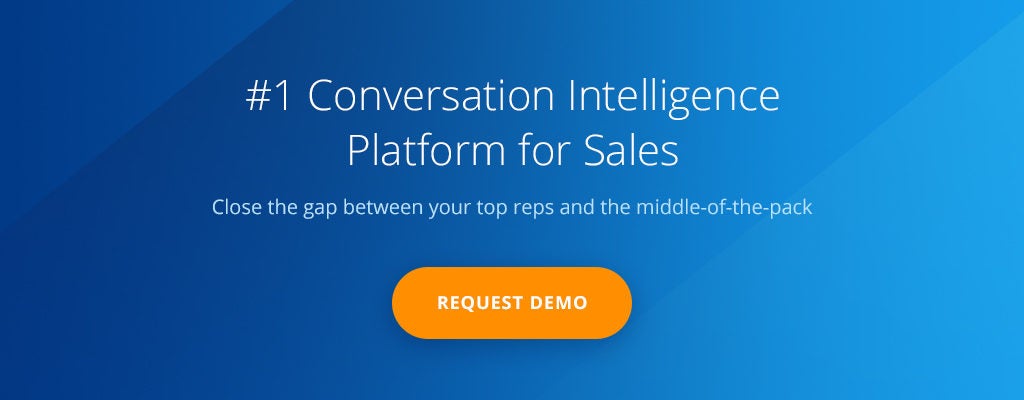Your Sales Effectiveness Programs Will Fail Without This Key Ingredient
The key ingredient that makes all of your sales effectiveness programs generate strong returns comes down to this:
Visibility into your team’s sales conversations.
Understanding this concept is critical to avoiding wasted time, effort, and money with your company’s sales effectiveness programs.
If you’ve been following this series, then you’ve learned two things:
- The #1 reason sales leaders miss their numbers is due to the performance gap between their top performers and the rest of the team
- What separates your star reps from the rest comes down to their sales conversations. As such, the root cause of this gap is lack of visibility into your team’s sales conversations
Here’s the third lesson:
You can’t close this performance delta with conventional solutions if you don’t have visibility into sales conversations.
Let’s talk about why…
Here’s Why Sales Training Fails Without Visibility
Every sales shop I’ve ever seen has some form of sales training.
This ranges from popular methodologies like The Challenger Sale and SPIN Selling, to custom-made, internally-delivered training curriculums, and everything in between.
This means everyone in your company has likely received the same baseline training.
And yet… “the gap” still exists.
This is a decisive indicator that formal sales training, by itself, is not doing the job of closing the performance gap between your top- and average-reps.
Why?
Without visibility into sales conversations, you can’t identify your sales team’s areas of improvement to base your training around.
Research from the RAIN Group confirms this. According to them, the #1 reason sales training fails is a failure to define the team’s training needs:
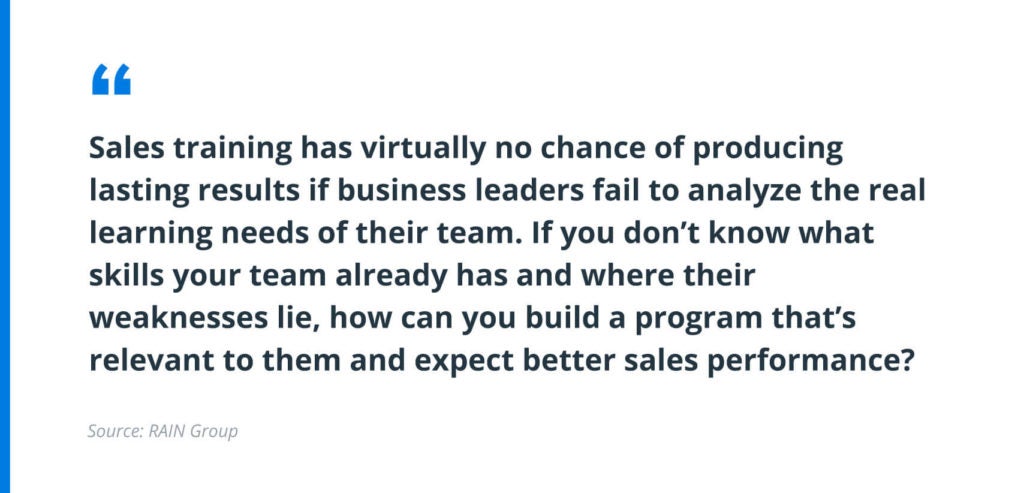
Identifying your team’s true needs is incredibility difficult without knowing what they’re struggling with during frontline sales conversations (versus what they say they need in a survey).
As a result, sales training often defaults to coming across as generic and not rooted in reality.
Next, executives spend a lot of money on sales training programs.
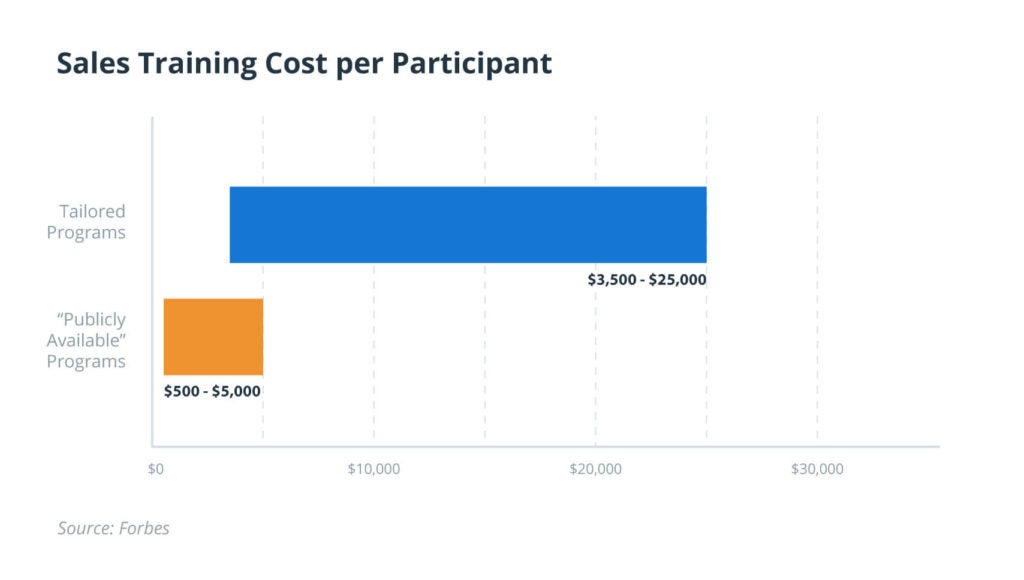
Tailored programs can range from $3,500 to $25,000 per day (“publicly available” programs are cheaper, ranging from $500 to $5,000 per participant. As such, they are often “one size fits all” programs).
But without visibility into frontline sales conversations, we are flying on blind faith that this expensive training is actually being implemented in a live setting.
The reality is that your reps are likely reverting back to their old behaviors almost immediately after training:
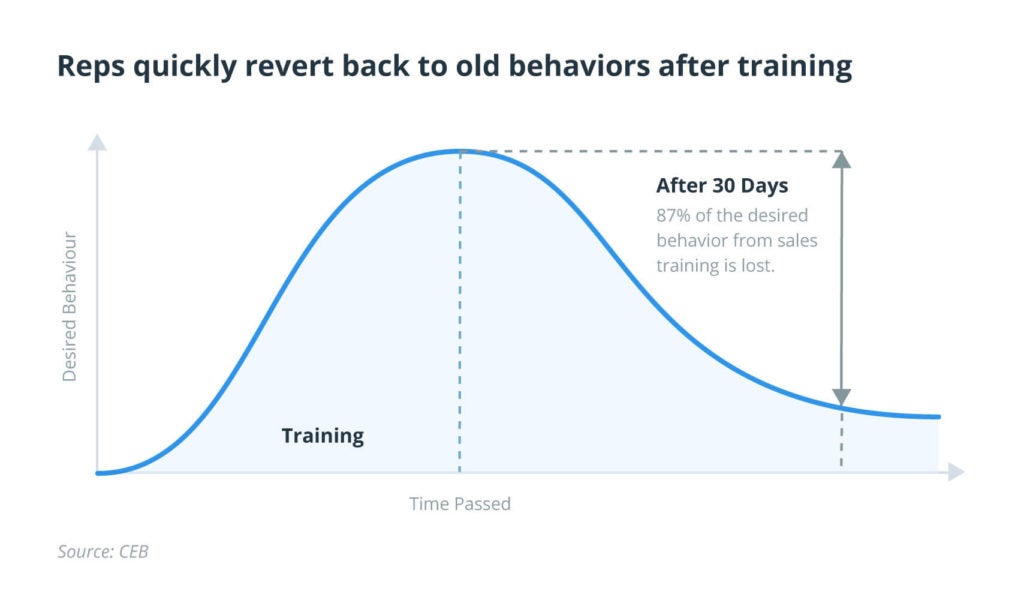
Without visibility, uplift in new behaviors are impossible to monitor, measure, and therefore, very difficult to reinforce.
Here’s Why Sales Coaching Falls Short Without Visibility
Coaching suffers from the same afflictions as sales training:
You cannot coach effectively without an understanding of how each rep conducts their sales conversations consistently.
Identifying each reps’ coaching needs becomes guesswork without visibility.
In fact, coaching without visibility is dangerous.
It can leave your reps worse off than before.
That’s because coaching is a diagnostic discipline.

The beginning of being a “poor coach” is an inability to diagnose a rep accurately.
Think of a doctor prescribing a remedy without understanding the underlying problem.
Coaching works the same way. Addressing the wrong things in the wrong ways with your reps will demoralize or frustrate them.

It’s a bold statement, but in some case, you may be better off with no coaching at all than coaching that isn’t based on facts, reality, and data.
Even if you somehow manage to address the right issues and conduct targeted coaching, how do you know your coaching is being acted upon and implemented if you don’t have visibility?
Like we mentioned earlier, the problem that coaching is designed to solve is that 87% of sales training is forgotten within 30 days.

Reinforcement can’t happen if you’re wearing a blindfold.
“We Only Hire A-Players” Doesn’t Close the Gap
Strictly hiring only “A-players” is an incredibly elusive goal, particularly for fast-growing companies.
Against your best intentions, you’ll still find yourself hiring “middle-of-the-pack” reps much of the time.
Even if you know you have an A+ candidate, hiring these people in abundance is expensive and frustrating:
Your success rate is probably pretty low because “A-Players” are those who have the most career options, and you’ll often lose out to other offers. You’ll, therefore:
- Have to weed through multiple candidates before you land one, and
- Invest much more time convincing them your company is the right choice for their career.
For a fast-growing company with an aggressive headcount number to hit, that’s a tough approach to be exclusive to.
The second issue with refusing to settle for anyone who doesn’t have a $300k W2 is that you’re leaving tons of talent on the table.
“Middle-of-the-pack” sales reps are – by definition – reps that have high potential but haven’t yet figured out a way to operate at that potential with consistency.
“Average reps” will become your top-notch reps given the right development, and it is an extremely high leverage endeavor to take on:
A “Repeatable Sales Process” Often Fails Without Visibility
In theory, having a repeatable sales process that everyone follows should make every rep a star performer (as long as your sales process is effective).
If everyone is taking the same steps and following the same behaviors, shouldn’t they all have the same results?
The short answer is “yes, but…”
And here’s the “but…”
If you are blind to your sales team’s execution of that process, you have zero assurance that your sales process is actually being adhered to.
The only visibility you have is the activity metrics that are taking place throughout the sales process: number/types of calls, emails, follow-up activity, proposals sent, etc.
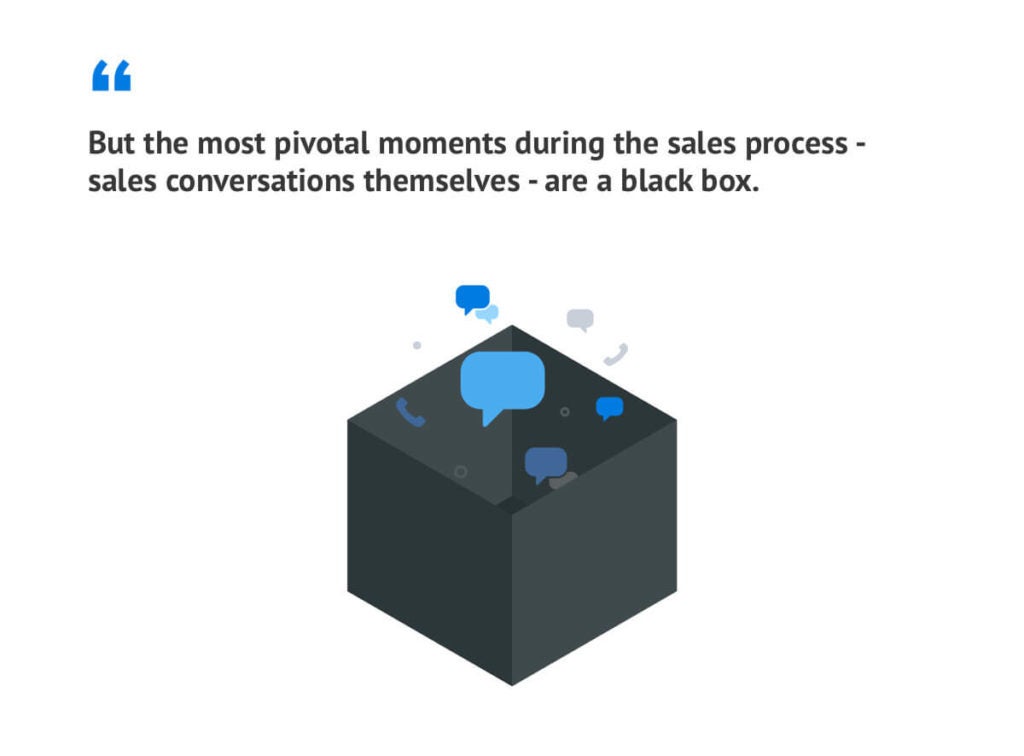
Your sales process also may be a lot less optimized than you think it is, containing many bottlenecks and elements that are misaligned with your potential buyers:
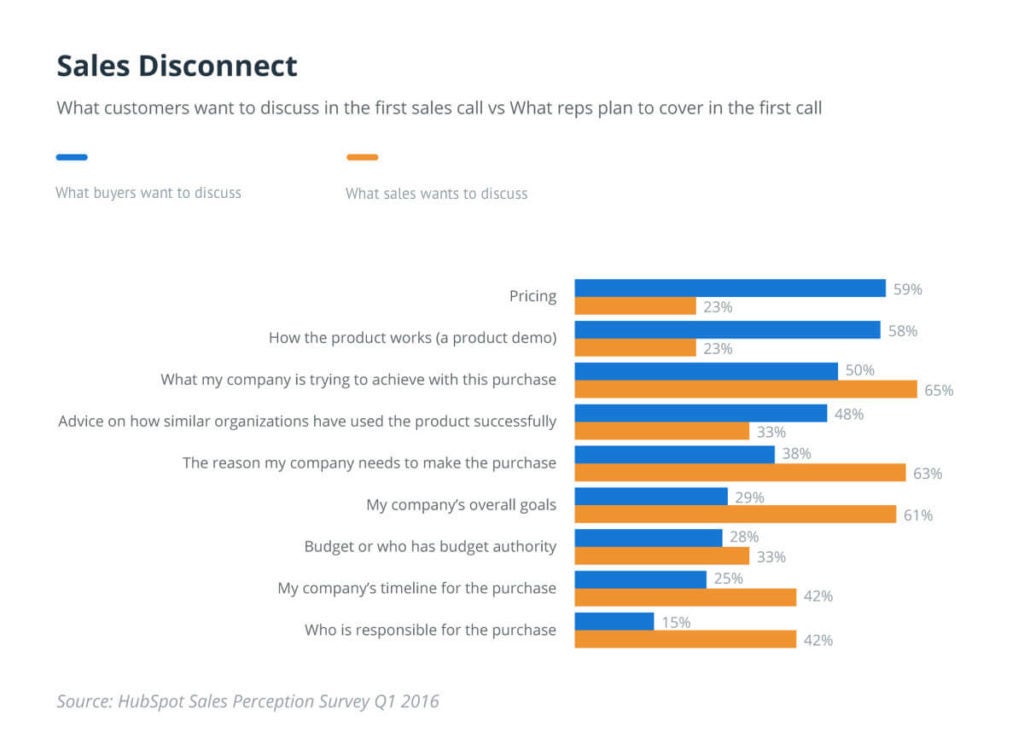
If you are blind to the sales conversations that happen at each stage of your sales process, there are likely a handful of bottlenecks and disconnects like this that you don’t even know exist, stalling deals at every turn.
Knowing how your sales process plays out on calls is critical to making the process better and more closely aligned with your buyers.
Here’s the Good News
The good news is that when you have visibility, all of the approaches above become extremely effective.
Sales training becomes surgically precise and firmly rooted in reality.
You can make sure it’s actually being implemented and reinforced, which means the ROI you get from what you spent on training will skyrocket:
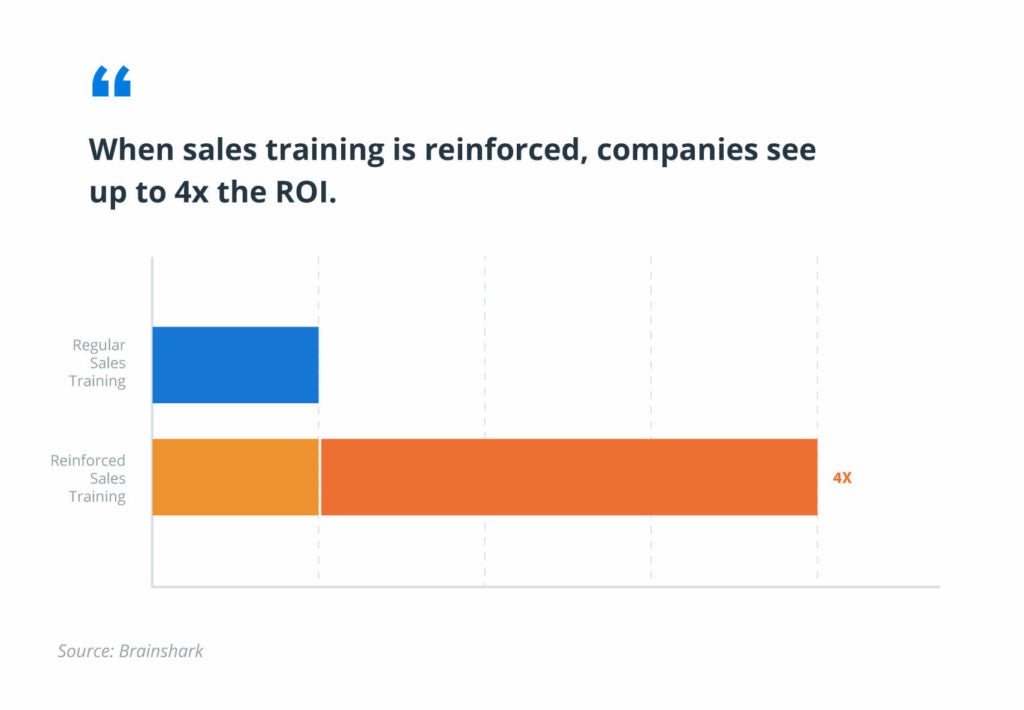
Coaching with visibility becomes a powerhouse.
Each individual’s coaching needs can be understood, addressed, and followed-through with to drive lasting behavioral change. This is the difference betweengenericcoaching and targeted coaching.
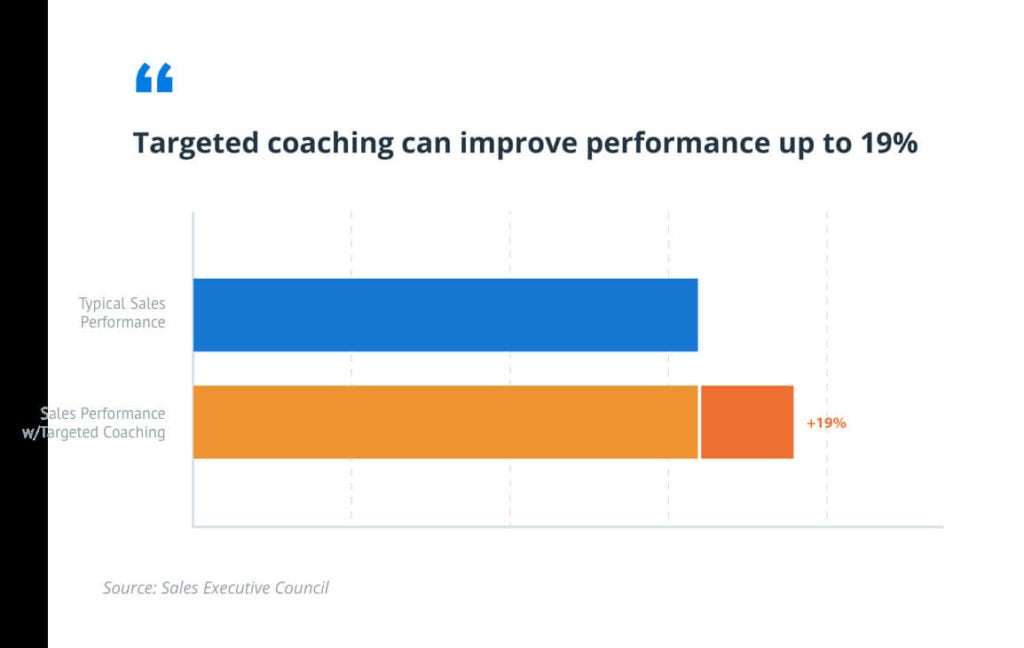
And not only can you ensure your sales process is executed with discipline, you can constantly refine it.
The “disconnects” in your sales process mentioned above will become plain-as-day, and you’ll soon be able to turn your sales process into a machine that generates revenue like clockwork.
The Top Three Ways to Get Visibility
At this point, you may be wondering “How do I get this visibility??”
There are three modern ways to do it, which I’ll be happy to walk you through in the NEXT article in this series.
>> Check out the top three ways to get visibility into sales conversations HERE <<
If you liked this article you may also be interested in:
Sales indicator – Best success indicator based on analyzing 21,537 sales calls

